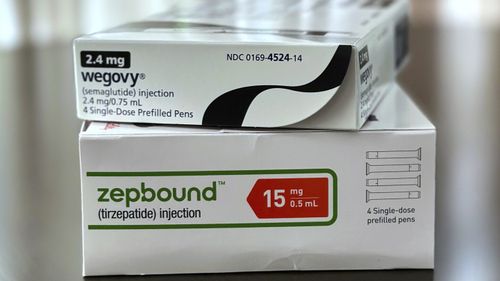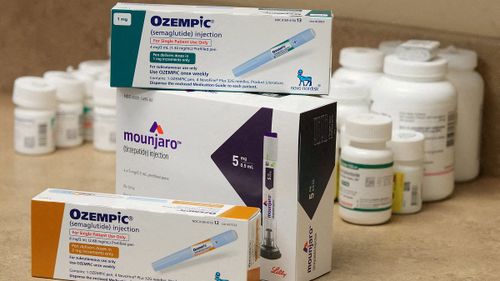Study Finds Weight-Loss Drugs Like Ozempic May Lower Cancer Risk in People With Diabetes and Obesity

Studies have shown the popular weight loss drugs known as GLP-1 agonists may be helpful for more than just curbing appetite — and new research is looking at their potential impact on cancer risk. GLP-1 drugs include popular brand names like Ozempic, Wegovy and Zepbound. In the observational study, released Thursday ahead of being presented at the 2025 American Society of Clinical Oncology conference, researchers found GLP-1s may modestly reduce the risk of 14 obesity-related cancers, especially colorectal cancer, when compared to a different type of medication often used to treat diabetes, known as dipeptidyl peptidase-4 (DDP-4) inhibitors, which don't have the same weight loss effect.

Excess body weight can raise the risk of certain cancers, leading researchers to wonder whether blockbuster drugs like Wegovy, Ozempic and Zepbound could play a role in cancer prevention. Now, a study of 170,000 patient records suggests there’s a slightly lower risk of obesity-related cancers in U.S. adults with diabetes who took these popular medications compared to those who took another class of diabetes drug not associated with weight loss.This type of study can’t prove cause and effect, but the findings hint at a connection worth exploring. More than a dozen cancers are associated with obesity. “This is a call to scientists and clinical investigators to do more work in this area to really prove or disprove this,” said Dr. Ernest Hawk of MD Anderson Cancer Center in Houston, who was not involved in the study.

Weight-loss medications and bariatric surgery have both been found effective at helping people shed excess pounds — and now a new study explores their link to obesity-related cancer (ORC) risk. Obesity is a known risk factor for certain types of cancers, and has also been shown to impact cancer survival. Obesity-related cancers include multiple myeloma, meningioma, adenocarcinoma of esophagus; stomach, colorectal, liver or bile duct, gallbladder, pancreas, uterus, ovary, renal-cell kidney, thyroid, and postmenopausal breast cancer, according to the Centers for Disease Control and Prevention (CDC).

Mounjaro, Ozempic and other fat-melting injections have ushered in a new era in the war on obesity, but have also been linked to other health benefits. Now scientists have discovered the drugs could reduce the risk of a range of weight-related cancers including pancreatic, kidney and ovarian. American scientists said the findings show the drugs have a 'preventative effect'

81% of adults trying to lose weight are eager to reach their goals as quickly as possible. Experts agree that weight loss is more than just medications. A sustained weight loss of about 6.5% of body weight without medications or surgery in middle-aged people is linked to substantial health benefits.

